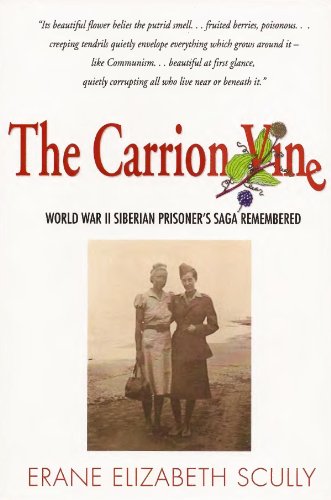This short book (237 pages) is a self-printed memoir of a little known event that
occurred during World War II. The author
was a 14 year old girl visiting her Polish relatives in August, 1939, when the
Nazis invaded the country. Her father
was a Polish diplomat stationed in Switzerland, and her mother was Swiss. Mother and daughter were both in Poland when
war was declared.
The
onset of war drove them from their relative’s home to Warsaw in a futile
attempt to reach the Swiss embassy. They
arrived during the blitzkrieg and found themselves targeted by Nazi dive
bombers, which appeared to enjoy strafing any Poles, civilian or military. There was no resistance from the Polish Air
Force. Their planes were destroyed while
still on the ground after the surprise German attack.
The
author and her mother moved east from Warsaw to escape the bombing and in so
doing met several notable characters on the way. They were eventually captured by Russian
troops who had invaded Eastern Poland almost at the same time the Germans
invaded Western Poland. The Russians
were making a sweep of the area and deporting hundreds of thousands of Poles to
work in the forests of Siberia.
The
journey mother and daughter endured was brutal, and fraught with drama. The Russians were uninterested in the
author’s mother’s Swiss nationality. She
and her daughter were placed in a cattle car and transported to Siberia. Some historians estimate the number deported
was as high as one million.
This
is the story of the day to day life of these unfortunate people and how they
coped with almost unbearable challenges.
The death rate was extremely high, from starvation, injury, disease, and
vitamin deficiency. .Workloads were
inhumane and the Russian camp guards mostly indifferent, though still open to
bribes. Fortunately for the author, her
mother had hidden some jewelry pieces in her bag and could use these to bribe
the guards.
| Erane Scully |
The
author’s mother risked her life to keep an accurate diary of all that was
occurring. Paper was precious, almost
non-existent, making the task both risky and .daunting. A long prison sentence if not death would
have been the penalty if the notes were ever discovered. Fortunately for historians they were not.
Release
from this hell came after the German invasion of Russia. Stalin slowly realized there were hundreds of
thousands of able bodied young Poles, both male and female, languishing in
Siberian work camps, who would be happy to fight Nazis. He was desperate for additional troops to repel
the Germans, and so ordered the camps closed.
A new Polish military unit was formed to fight against the Germans...
After
being liberated from their Siberian work camp, mother and daughter started on
the many thousand mile trek from Siberia through Russia, Tehran, Karachi, and
finally Mumbai. It was an epic journey
and vividly told in the third person by the author who was an eyewitness as
well as a survivor.
The
writing is clear, characters are well defined, and the story riveting. Anyone interested in more knowledge of World
War II would find this book valuable to them.
It is available on Kindle (here)
and a new edition of 100 self-published paper copies will be released soon.
The
author is now 93 years old, and lives in a retirement home in the US.
Mary Rabot lives in
Mississauga, is interested in World War II history, and is trying to learn how
to tell stories.
See Brian Henry’s schedule here, including Saturday
writing workshops, weekly writing classes, and weekend retreats in Algonquin Park, Alliston,
Bolton, Barrie, Brampton, Burlington, Caledon, Collingwood, Georgetown,
Georgina, Guelph, Hamilton, Jackson’s Point, Kitchener-Waterloo, London,
Midland, Mississauga, New Tecumseth, Oakville, Ottawa, Peterborough, St.
Catharines, Sudbury, Toronto, Windsor, Woodstock, Halton, Muskoka, Peel,
Simcoe, York Region, the GTA, Ontario and beyond.


No comments:
Post a Comment
Note: Only a member of this blog may post a comment.